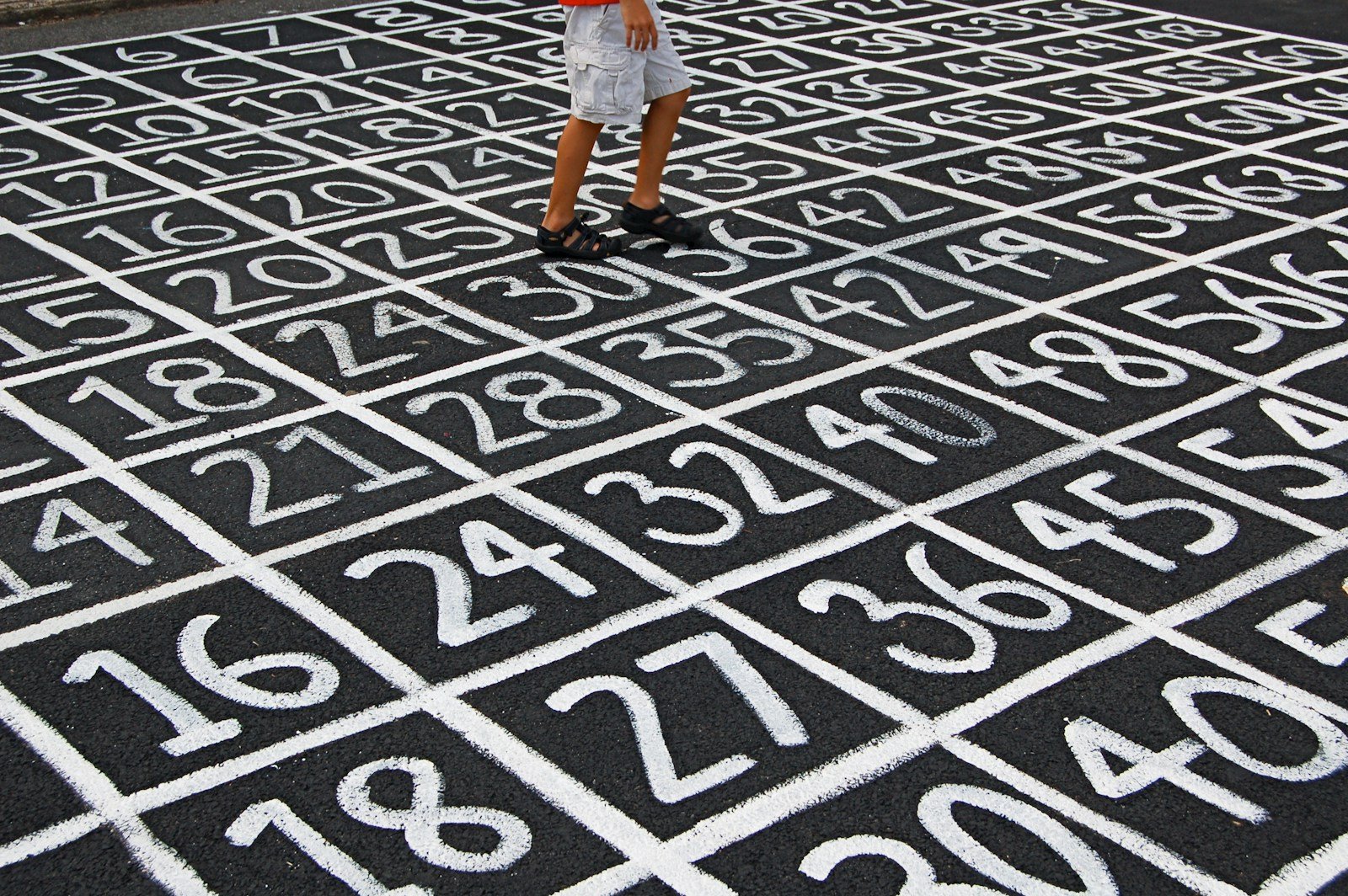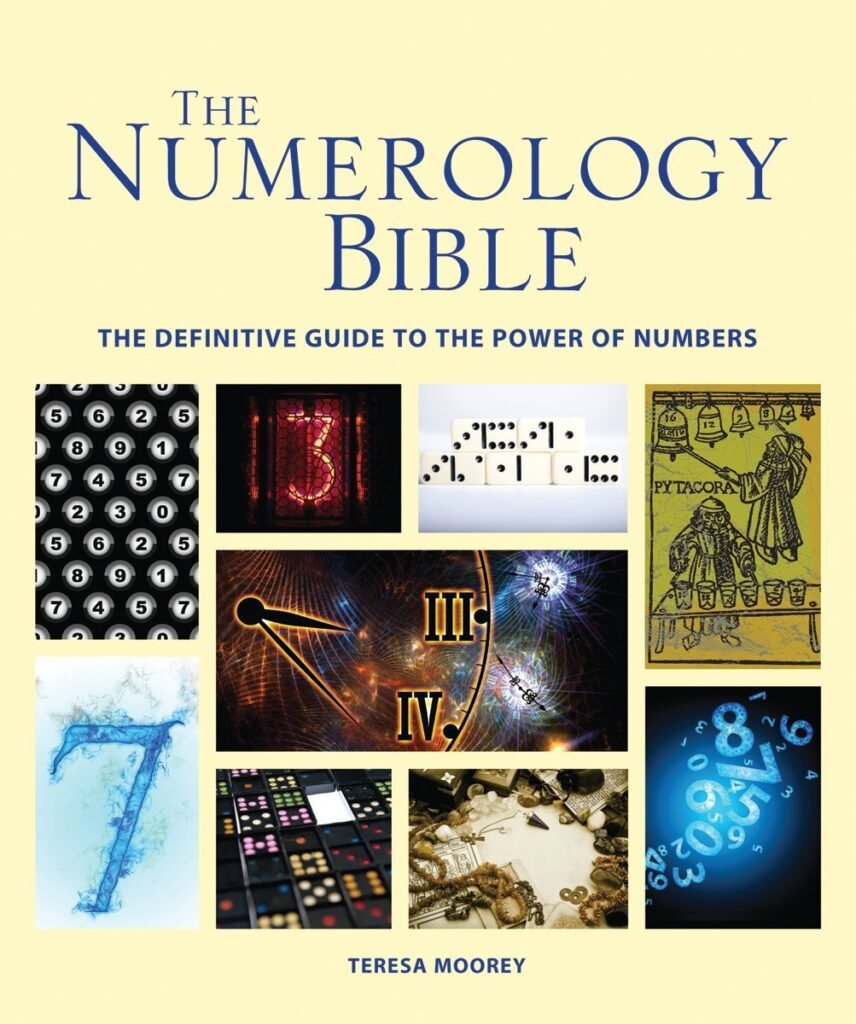What is the significance of numbers in Biblical numerology, and why is comprehending their meanings within the Scriptures crucial? In the era when the Scriptures were penned, numerous numbers bore profound symbolic significance. The Bible is replete with symbolic elements, ranging from the Ark of the Covenant to the tzitzit on the garments of the Israelites, all the way to the Beast’s number as mentioned in the Book of Revelation. Through symbols, including numerical ones, God conveys spiritual truths to humanity.
Grasping the symbolism of these numerals found within the Scriptures can enhance your understanding of God’s divine revelations. Let’s embark on a succinct exploration of the Numerology in the Bible before delving into the interpretations of specific numbers highlighted in the Bible.
Table of Contents
Why numerology in the bible is Important?
From the beginning, it’s critical to clarify that although God infused specific numbers with symbolic intent, we must exercise caution in not overemphasizing the numerology within the Bible.
Overstating the importance of these numbers has led to the development of mystical ideologies, flawed theological concepts, unconventional eschatological views, and even the delve into occult practices — the belief that numbers possess a mystical essence which can be harnessed for divinatory uses.
The Scripture explicitly denounces all forms of divination (Deuteronomy 18:10-12), and this stance was unanimously supported by the Early Church Fathers, who repudiated the use of numbers for divination, predicting future events, and similar practices.
They pointed out that such practices stemmed from Babylonian paganism, Pythagorean mysteries, and Gnosticism. For instance, St. Ambrose stated:
“The number seven is considered significant, not through the lens of Pythagoras or other philosophers, but through the lens of the Spirit’s grace and its distribution; Isaiah outlined the seven core gifts of the Holy Spirit” (Epistle to Horontianus).
Similarly, Anatolius remarked: “It wasn’t only Pythagoras who esteemed arithmetic (numerology) highly; his most notable followers did as well.”
The Church Fathers extensively criticized all forms of divination and mystery cults, including those utilizing numerology.
“The so-called secret and hidden wisdom of the Egyptians and the astrological knowledge of the Chaldeans and Indians are what we consider the wisdom of the world’s princes” (Origen).
All such “wisdoms,” practices, ceremonies, rituals, and even the most innocuous party games are unequivocally condemned by both the Scriptures and the esteemed theologians of Christian history.
Nonetheless, they acknowledged the presence of a divinely inspired numerical system within God’s Word. Prime examples of scriptural books featuring such numerical references are Daniel (Daniel 7:3) and Revelation (Revelation 13:15-18).
Meaning of Numbers in the Bible

Each number we’ve talked about here has its own special story, explained in its own article. So, there’s a lot more to explore if you’re curious!
- Number 1: Unity, God’s supremacy, the beginning (e.g., “Hear, O Israel: The Lord our God, the Lord is one.”- Deuteronomy 6:4).
- Number 2: Witness, division, duality (e.g., Two witnesses in Revelation, light and darkness).
- Number 3: Divine perfection, the Trinity (Father, Son, Holy Spirit), resurrection (e.g., Jonah spent three days in the belly of the fish, Jesus rose after three days).
- Number 4: Creation, the world (e.g., Four winds, four corners of the earth).
- Number 5: Grace, God’s favor (e.g., Five loaves of bread, David’s five smooth stones).
- Number 6: Humanity, imperfection (e.g., Created on the sixth day, number of the Beast).
- Number 7: Spiritual perfection, completeness (e.g., Seven days of creation, seven churches in Revelation).
- Number 8: New beginnings, resurrection (e.g., Jesus resurrected on the eighth day, eight people saved on Noah’s Ark).
- Number 9: Fruitfulness, divine judgment (e.g., Nine fruits of the Holy Spirit, nine plagues of Egypt).
- Number 10: Completeness, divine order (e.g., Ten Commandments, ten plagues of Egypt).
- Number 11: Disorder, weakness (e.g., The number of kings who ruled over Judah after the split of the kingdom, seen as a time of division and weakness).
- Number 12: Divine government, completeness (e.g., Twelve tribes of Israel, twelve apostles).
- Number 13: Rebellion, apostasy (e.g., Represents spiritual rebellion, seen in the story of thirteen men sent to spy on the Promised Land, twelve of whom brought back a negative report).
- Number 14: Some scholars associate 14 with imperfection or a double measure (7 x 2), connecting it to the 14 generations listed in Matthew’s genealogy of Jesus, which deviates from the standard threefold divisions. However, interpretations vary.
- Number 15: Completeness, rest (e.g., The number of steps leading to the temple in 1 Kings 10:9 is seen by some as a symbol of reaching a state of completeness and rest).
- Number 16: Humanity (e.g., Verse numbers in some Psalms, representing human limitations).
- Number 17: Victory, triumph (e.g., David defeats Goliath with a stone from his sling in 1 Samuel 17).
- Number 18: Freedom, covenant (e.g., Age at which a male Levite could begin service, possibly symbolizing the age of maturity and entrance into a covenant of service).
- Number 19: Refining fire, judgment (e.g., Sarah conceived Isaac at the age of 90, which can be seen as a number symbolizing the refining fire of waiting and God’s faithfulness).
- Number 20: Redemption, completion (e.g., Twenty shekels as the price of a slave in Exodus 21:32).
- Number 21: Transition, fulfillment of promise (e.g., Israel wandered for 21 years before entering the Promised Land, symbolizing a period of transition and the fulfillment of God’s promise).
- Number 22: Witness, confirmation (e.g., Twenty-two letters in the Hebrew alphabet).
- Number 23: Importance, significance (e.g., The number of genealogies listed in 1 Chronicles 5:7).
Special Number Combinations
- Number 333: Emphasized symbol of divine perfection, possible representation of the Trinity.
- Number 555: Grace multiplied, significant change (e.g., Jesus fed 5,000 with five loaves of bread).
- Number 666: The Beast, opposition to God, imperfection (e.g., Mark of the Beast in Revelation).
Cautions and Interpretation
As we delve into the fascinating world of symbolic numbers in the Bible, it’s important to approach this knowledge with a sense of perspective and caution. It’s true that numbers can hold deeper meanings beyond their face value, enriching our understanding of Scripture. However, it’s crucial to remember that the Bible’s core message isn’t hidden within numerical codes. Its central theme is one of salvation and building a personal relationship with God through faith and love.
While exploring the potential symbolism of numbers can be an intriguing exercise, it’s vital not to become overly fixated on this aspect. We shouldn’t misinterpret the plain meaning of the text by assigning excessive weight to numerological interpretations. The Bible’s message is primarily conveyed through its clear and straightforward language, and that should always take precedence.
It’s also important to acknowledge that numerology can be taken too far. Attributing specific meanings to every number encountered in the Bible can lead to oversimplification and even superstition. Remember, the Bible is a complex and multifaceted text, and its meanings should never be solely reliant on numerical interpretations.
Instead of viewing numbers as a key to unlocking hidden messages, let’s see them as complementary layers that can add depth and richness to our understanding. As we approach them with curiosity and respect, while remaining grounded in the Bible’s central message, these symbolic elements can enhance our appreciation for the richness and beauty of Scripture.
Numbers – Adding Depth to Our Journey
As we close this exploration of numbers in the Bible, it’s clear that these seemingly simple digits can hold layers of meaning, adding richness to our understanding of Scripture. We’ve discovered that numbers can symbolize concepts like unity, grace, completeness, and even judgment. While the interpretations may vary and shouldn’t overshadow the Bible’s central message, delving into their symbolism can be a fascinating journey.
Remember, the core message of the Bible remains one of love, faith, and building a relationship with God. However, exploring the potential meanings of numbers can open our eyes to new layers of beauty within the text, like hidden treasures waiting to be discovered.
If you’re curious to learn more about Biblical numerology, I would recommend:
Remember, approaching this topic with curiosity and respect is key. As you continue your exploration, may it deepen your appreciation for the multifaceted nature of the Bible and the wonders it holds within its pages
Share Your Thoughts
We’d love to hear your insights and reflections on this fascinating topic. Your thoughts and experiences are valuable to us, so please feel free to share them in the comments section below. Whether you’re just beginning your journey into biblical numerology or you’re further along the path, your perspective enriches the conversation.
Your engagement and curiosity make our community stronger.
Let’s continue this journey of discovery together, sharing and learning from each other.

Rockin’ the faith, one verse at a time!
Growing up, the Bible’s stories deeply impacted me. Now, with over 15 years of preaching experience, I blend timeless teachings with modern technology, making them relevant for today’s world.
Bible Hub Verse is my platform to share historical insights and thought-provoking articles, exploring both familiar and uncommon Christian topics. My passion is building a welcoming online space for everyone to learn, grow in their faith, and discover the Bible’s enduring message.
Join the journey!
God bless you.










